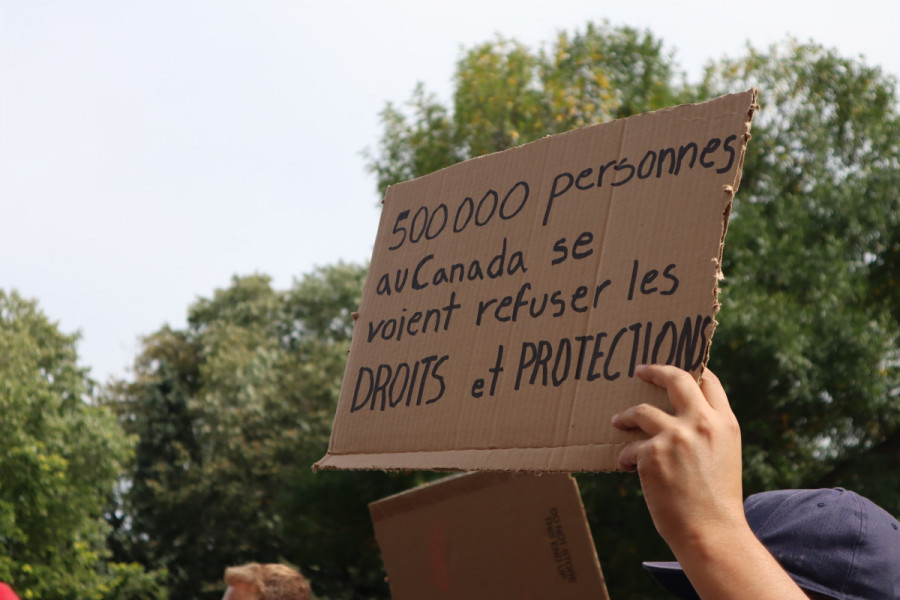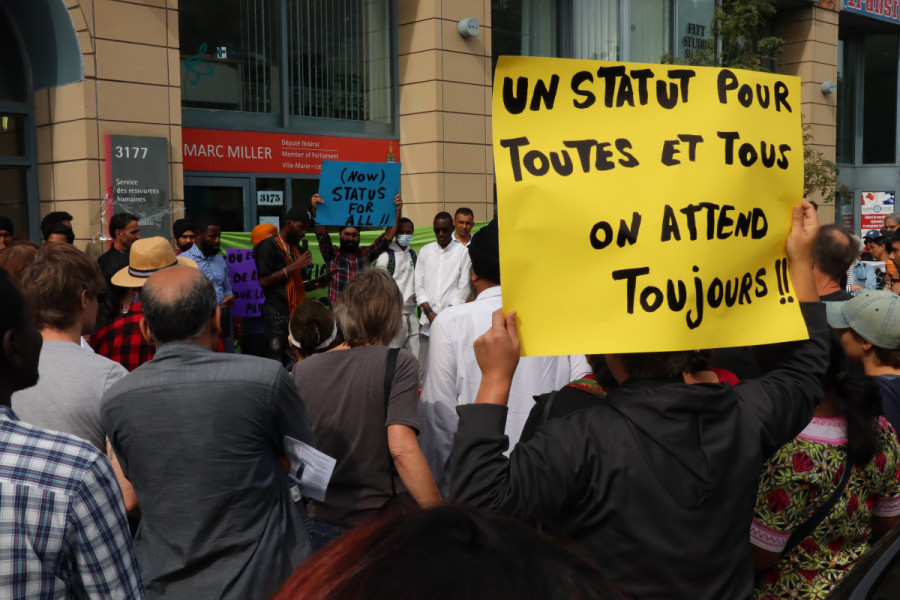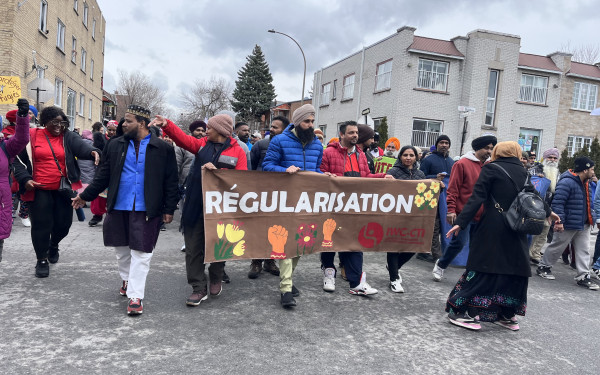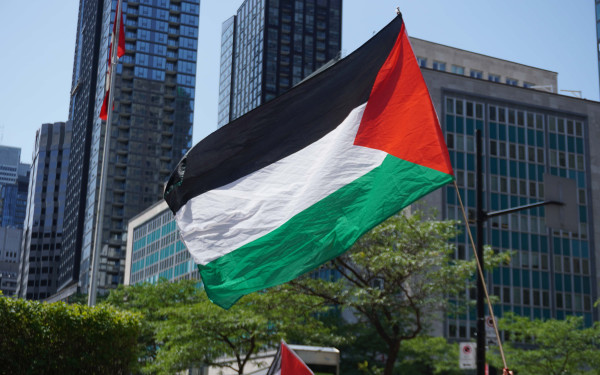Status For All: Undocumented migrants fight for recognition
Protesters denounce government stalling in the regularization of half a million migrants
Disclaimer: For the safety of the interviewees, their full names are not revealed in this article.
On Sept. 17, a group of activists advocating for the Status For All movement, along with around 50 other people, gathered in front of the minister of immigration Marc Miller’s office in Montreal.
“We are asking Miller to accelerate and concretize the process of regularization of migrants without papers,” an organizer claimed. The protest’s main message is “status for all, without limits, without exceptions, without discrimination,” expressed in various ways through the speakers and posters at the event.
The demonstration was one of many that occurred throughout Canada. The protesters demand a full, comprehensive and ongoing regularization program for all people here who do not have full status (permanent residence or citizenship). There are over half a million migrants living in Canada without documents.
Individuals who do not have full status can easily be exploited due to “[having] to live in fear with the risk of being deported,” said protest organizer Saysay in a speech.
The chants “solidarity with the undocumented” and “status for all” resonated deeply with the migrants of Montreal. The activists demonstrated their alliance by cheering each other on, playing music from various cultures, handing out free water and sandwiches, and giving hand-made posters and signs to the participants so they could feel involved and welcome.
Another organizer, Dounia, expressed that Canada was supposed to offer them peace, but instead, while migrants are doing everything they can for this country, they are being exploited due to lack of status. “Employers use the occasion of our vulnerability to exploit its workers,” she said. "We are angry because we are exploited, we don’t have rights to health services. We don’t have rights to anything actually, we have nothing.”
Canadian undocumented migrants do not get the same access to healthcare and other benefits throughout the country. “All of these people that are here, they are working, they are tenants paying high rent. So basically it's an injustice and an inequality that they are not having an official status here,” said Sohnia, a speaker at the event.
“We are angry because we are exploited, we don’t have rights to health services. We don’t have rights to anything actually, we have nothing.” — Dounia
Alka, a participant, explained that she has been here for five years and still hasn’t received permanent work status at her job . A necessity, she said, should have been received after three months: “Because we don’t have status, we are not treated properly. Employers can easily get irritated and fire us.”
In 2021, the previous minister of immigration, along with Prime Minister Justin Trudeau, promised to regularize all undocumented migrants in Canada, but the migrants have heard no news ever since. Saysay explained that a part of this manifestation is getting many people to send out emails to Miller, which he believes will put pressure on the minister to arrange things more quickly with the federal government. In an interview with CBC, Miller admitted that the day-to-day operations of immigration applications are not adapted to the 21st century.
Sohnia spoke about the injustice of not receiving full status. “This fight is for basic, fundamental human rights which are supposed to be principles of our declaration,” she said. “It’s not acceptable. We are all humans who need to be ensured these rights no matter where we are or what our status is.” She continued, saying that this immigration regularization process has become notorious for its tardiness and its false promises, largely affecting migrants’ physical and mental health.

Many of the participants have lived in Canada for several years, but are still being treated unfairly; “I have been in Canada for 15 years,” Marianna, an organizer, divulged, “and I do not have the right to education.”
Samira Jasmin, one of the event’s regular speakers, has been fighting for the undocumented for three years and has only just received her papers. “I understand completely how it is to live without papers; that vulnerability and precariousness. We don’t have care, nor work permits, nor housing. I will always stand with the undocumented.”
After multiple speeches from various speakers, chants from participants and honks of support by the passing cars, the crowd dissipated with hope and fury in their eyes.





_600_375_90_s_c1.jpeg)

